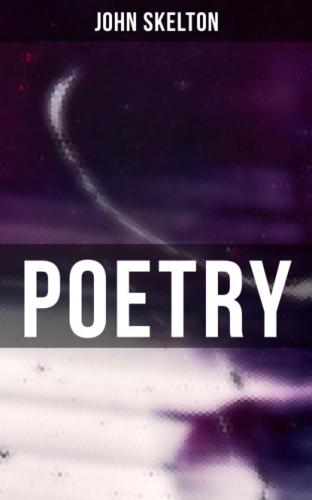Into Britayne,
A lande full of plentie,
A gyaunte greate
Came to seke meate,
Whose name was Philargyrie,” &c.
“See also,” says Warton (Hist. of E. P. ii. 358, note, ed. 4to), “a doggrel piece of this kind, in imitation of Skelton, introduced into Browne’s Sheperd’s Pipe,”—a mistake; for the poem of Hoccleve (inserted in Eglogue i.), to which Warton evidently alludes, is neither doggrel nor in Skelton’s manner.
POETICAL WORKS
OF
JOHN SKELTON.
OF THE DEATH[155] OF THE NOBLE PRINCE, KYNGE EDWARDE THE FORTH, PER SKELTONIDEM LAUREATUM.
Miseremini mei, ye that be my frendis!
This world[156] hath formed me downe to fall:
How may[157] I endure, when that eueri thyng endis?
What creature is borne to be eternall?
Now there[158] is no more but pray for me all:
Thus say I Edward, that late was youre kynge,
And twenty two[159] yeres ruled this imperyall,
Some vnto pleasure, and some to no lykynge:
Mercy I aske of my mysdoynge;
What auayleth it,[160] frendes, to be my foo, 10
Sith I can not resyst, nor amend your complaining?
Quia, ecce, nunc in pulvere dormio!
I slepe now in molde, as it is naturall
That[161] erth vnto erth hath his reuerture:
What ordeyned God to be terestryall,
Without recours to the erth[162] of nature?
Who to lyue euer may himselfe assure?[163]
What is it[164] to trust on mutabilyte,
Sith that in this world nothing may indure?
For now am I gone, that late was in prosperyte: 20
To presume thervppon, it is but a vanyte,
Not certayne, but as a cheryfayre[165] full of wo:
Reygned not I of late in greate felycite?
Et, ecce, nunc in pulvere dormio!
Where was in my lyfe such one as I,
Whyle lady Fortune with me had continuaunce?
Graunted not she me to haue victory,
In England to rayne, and to contribute Fraunce?
She toke me by the hand and led me a daunce,
And with her sugred lyppes on me she smyled; 30
But, what for her dissembled countenaunce,
I coud not beware tyl I was begyled:
Now from this world she hath me excyled,
When I was lothyst hens for to go,
And I am in age but, as who sayth, a chylde,
Et, ecce, nunc in pulvere dormio!
I se wyll,[166] they leve that doble my ȝeris:
This[167] dealid this world with me as it lyst,[168]
And hathe me made, to ȝow that be my perys,
Example to thynke on Had I wyst: 40
I storyd my cofers and allso my chest[169]
With taskys takynge of the comenalte;
I toke ther tresure, but of ther prayȝeris mist;
Whom I beseche with pure humylyte
For to forgeve and have on me pety;
I was ȝour kynge, and kept ȝow from ȝowr foo:
I wold now amend, but that wull not be,
[Quia,] ecce, nunc in pulvere dormio!
I had ynough, I held me not content,
Without remembraunce that I should dye; 50
And more euer to incroche[170] redy was I bent,
I knew not how longe I should it occupy:
I made the Tower stronge, I wyst not why;
I knew not to whom I purchased Tetersall;
I amendid Douer on the mountayne hye,
And London I prouoked to fortify the wall;
I made Notingam a place full[171] royall,
Wyndsore, Eltam,[172] and many other mo:
Yet at the last I went from them all,
Et, ecce, nunc in pulvere dormio! 60
Where is now my conquest and victory?
Where is my riches and my royal aray?
Wher be my coursers and my horses hye?
Where is my myrth, my solas, and my[173] play?
As vanyte, to nought al is wandred[174] away.
O lady Bes, longe for me may ye call!
For I[175] am departed tyl domis day;
But loue ye that Lorde that is soueraygne of all.
Where be my castels and buyldynges royall?
But Windsore alone, now I haue no mo, 70
And
